Humanities & Social Sciences
Makerere Eulogizes Anthem Composer Grace Wilson Igaga Mutekanga: VC Unpacks the Meaning of the Anthem
Published
2 years agoon
By
Jane Anyango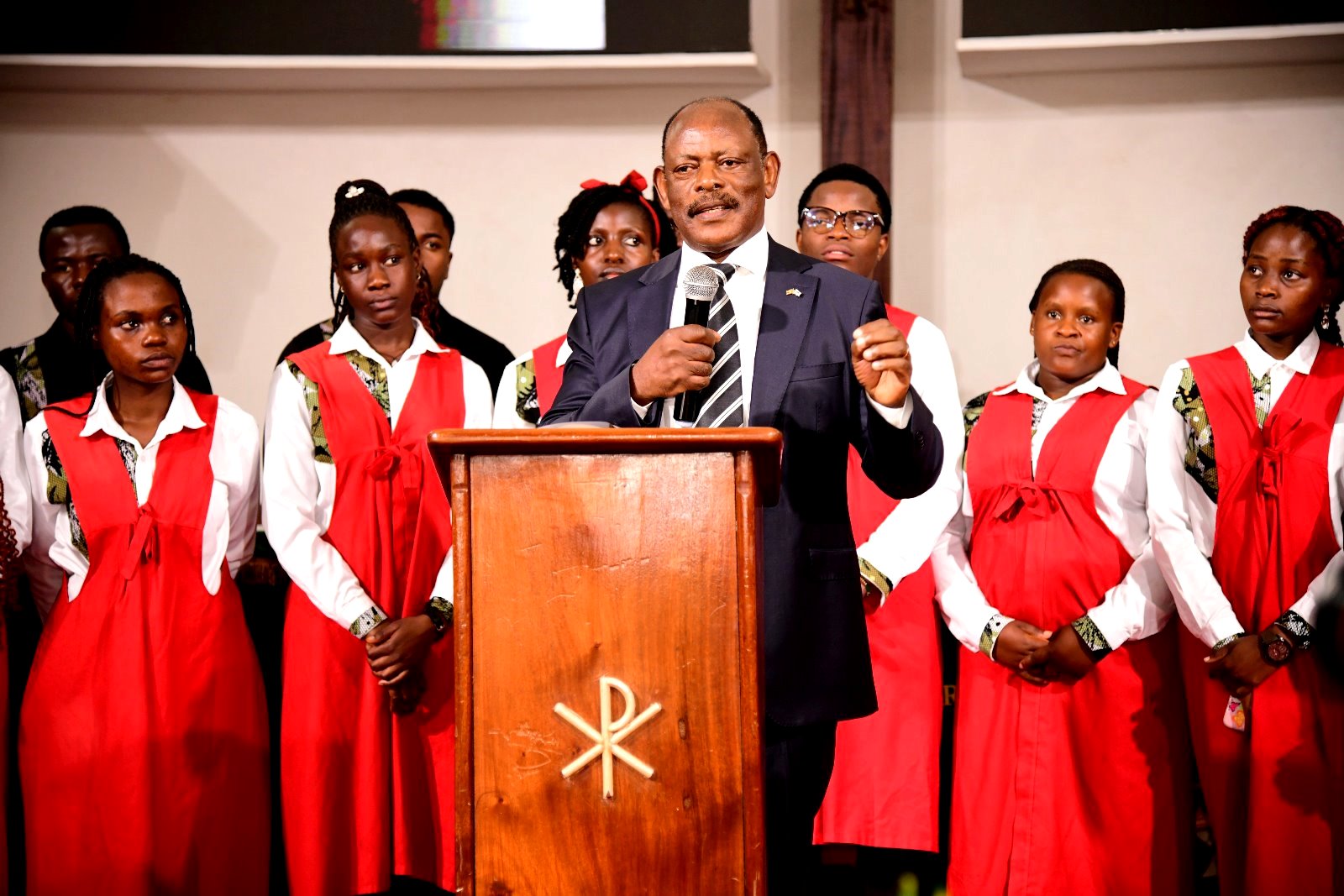
On August 22, 2024, St. Francis Chapel at Makerere University was filled with mourners from all walks of life who gathered to pay their final respects to Grace Wilson Mubi Igaga Mutekanga, the esteemed alumnus, musician, and educator. Mutekanga, who passed away on August 16, 2024, at the age of 81, leaves behind a legacy rooted in education, music, and community service. His most celebrated contribution to the university was composing the Makerere University Anthem, a song that continues to resonate with pride among students and alumni alike.
The funeral service, organized by Makerere University in coordination with the bereaved family and the Department of Performing Arts and Film, was a tribute to the life of an exceptional man whose impact on Makerere University and the field of education will inspire future generations.
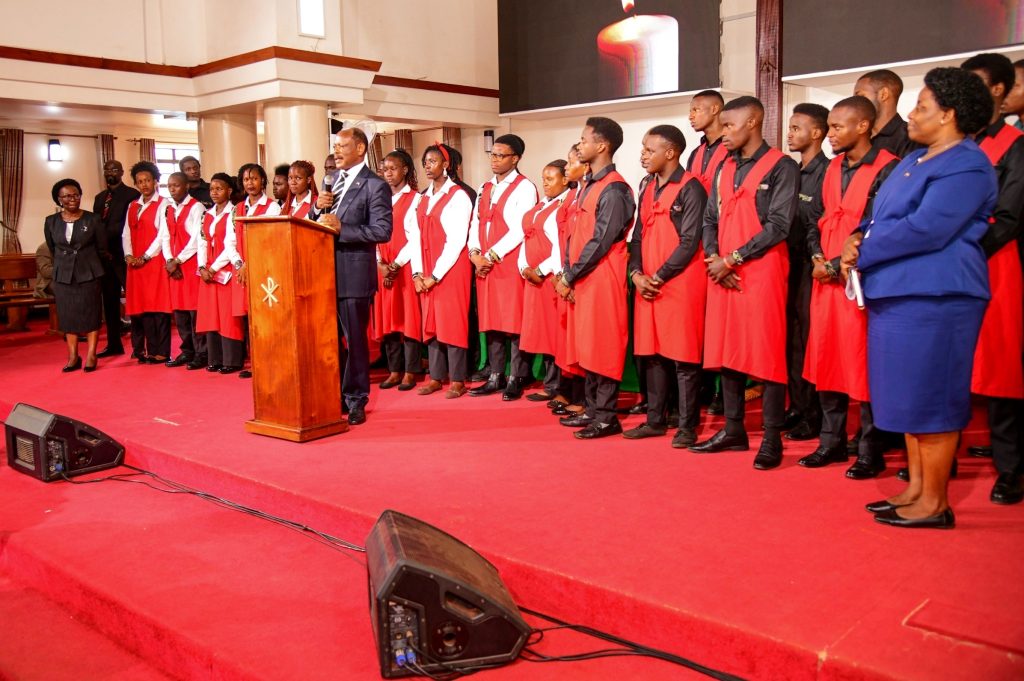
During the service, Makerere University Vice Chancellor, Professor Barnabas Nawangwe emphasized that the Makerere University Anthem, composed by Mutekanga, is not just a song but a powerful symbol of institutional pride, unity, and spirit. “We should celebrate because God has enabled us to share this path with such a great mind that was in the late Mutekanga,” Nawangwe added.
The Vice Chancellor elaborated on the personal connection he shared with Mutekanga, highlighting their shared educational background at Busoga College Mwiri. “I am in a way related to the late, first as my OB [Old Boy]; we went to Mwiri, and many good things came out of that school. We gave this country a first minister, and we gave this country a motto. We donated Mutekanga to Makerere, and he gave us a lifetime anthem that will remain alive for thousands of years. What a great man!” he remarked.
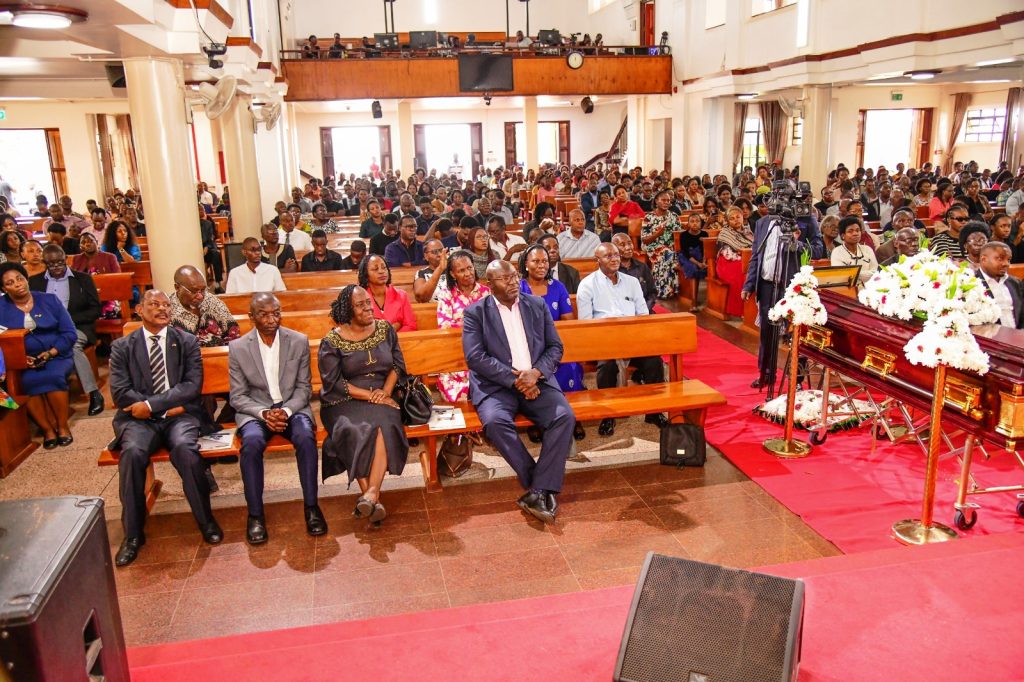
Nawangwe also spoke of the Makerere Anthem’s unique ability to evoke emotions, noting how graduates celebrate the anthem with unparalleled enthusiasm. “We always have graduations here. And of course, we always stand to our national anthem, but we never dance. But when it comes to singing the Makerere Anthem, students never just stand, they even dance and go wild because of the joy they have when it is sung. But you can’t stop them because of the joy we have when we dance with them” Nawangwe observed.
Turning to Mutekanga’s academic journey, Nawangwe described him as a man with a “restless mind” who pursued his passion for music despite initially studying social sciences. “Great minds are always restless. Mr. Mutekanga came to Makerere to study social sciences, but he loved music. And so, he was restless. He wanted to know what he really had in his heart and loved. If that had not happened, maybe we would not have this anthem,” Nawangwe reflected.
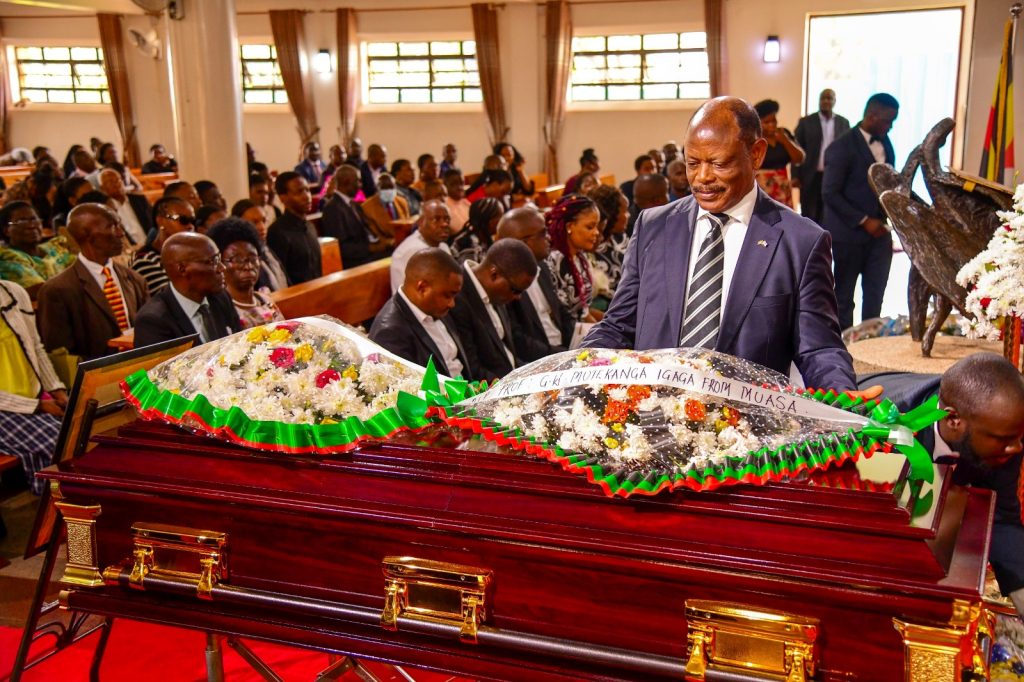
In a poignant moment, Prof. Nawangwe unpacked the meaning behind the Makerere University Anthem, describing it as a powerful summation of the institution’s values and mission. “The song says, ‘Great are the walls beside thee.’ And he said to his new students and the new staff, ‘Great are the gates beside thee.’ So, you have passed through great walls and great gates. And that gives us great hope and reminds us that we are great,” Nawangwe explained.
He continued to highlight the significance of the anthem’s call to action, “Arise, all of you arise. Makerere, arise.” “Arise means, when we want to do anything important, we stand up. That’s why they say, ‘Stand up to be counted.’ So, this gentleman had such a weight in these few sentences that he wrote that he actually talked a lot of things. So, we always, of course, arise to the occasion, as the greatest institution, in order to make the lives of our people better,” Nawangwe said.
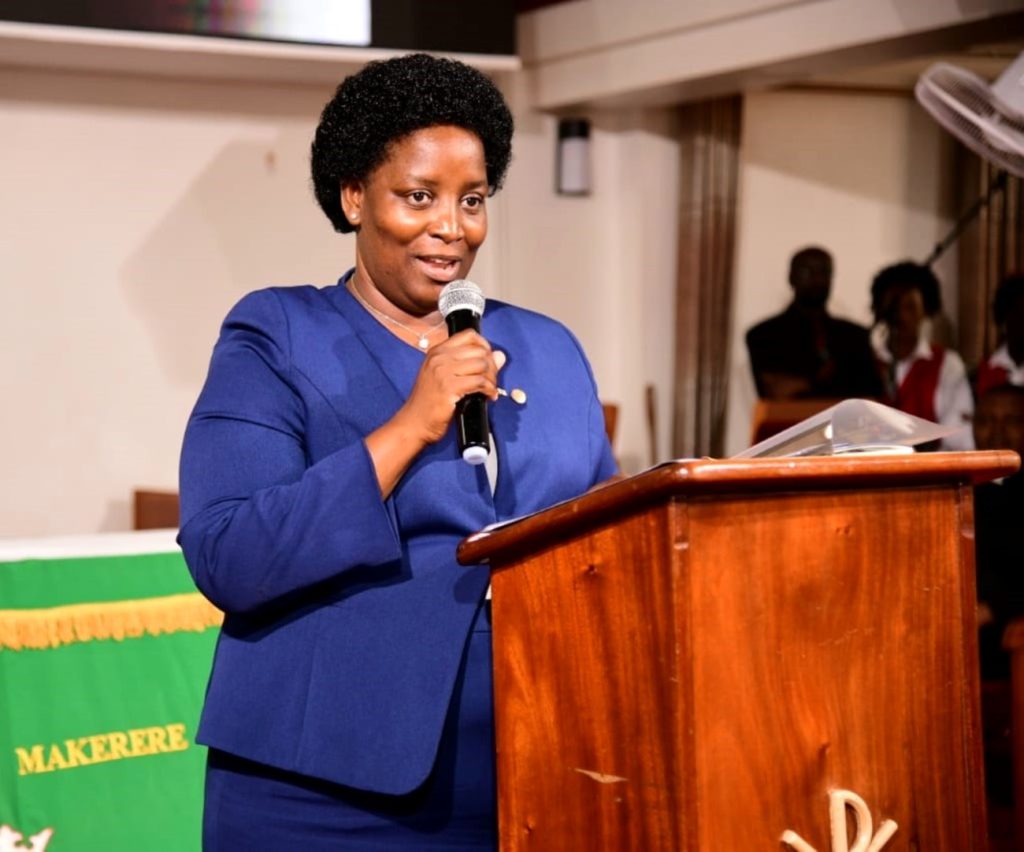
Nawangwe concluded by emphasizing the anthem’s enduring legacy and its role in uniting people from all over the world. “From east and west, from north and south. All voices singing the great Makerere. It means the institution will welcome people from everywhere in the world, not just the people from the south and west. And that has been the legacy of the university. Makerere University is considered the most international university in the world,” he noted.
The Principal of the College of Humanities and Social Sciences, Associate Prof. Helen Nambalirwa Nkabala, offered her reflections. “It is so sad that we gather here not only to celebrate in a happy way but also in a sad way. However, we are celebrating a great man who has given us something to live by as Makerere University,” Nkabala said.
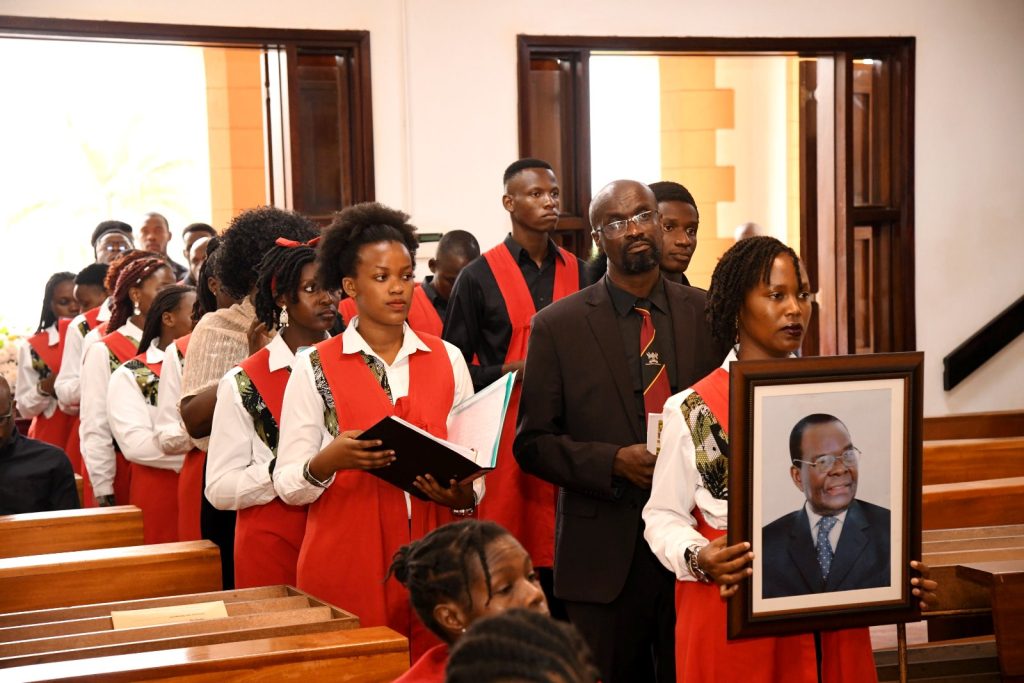
She lauded Mutekanga as a visionary who saw the world before it was made and as someone who celebrated the diversity of humanity. “One who did not only celebrate from east to west, but also from north to south, which takes care of the central. One who was able to know that as we are here, we are beautiful, but there are those who are poor and there are those who are proud,” she added.
In a final tribute, Nkabala emphasized the legacy Mutekanga has left behind. “We are not mourning; we are celebrating because he has left a legacy that no one can match—not now, and not tomorrow. We celebrate him, we thank God for that and to the family, for the life that we have lived with him,” she said.
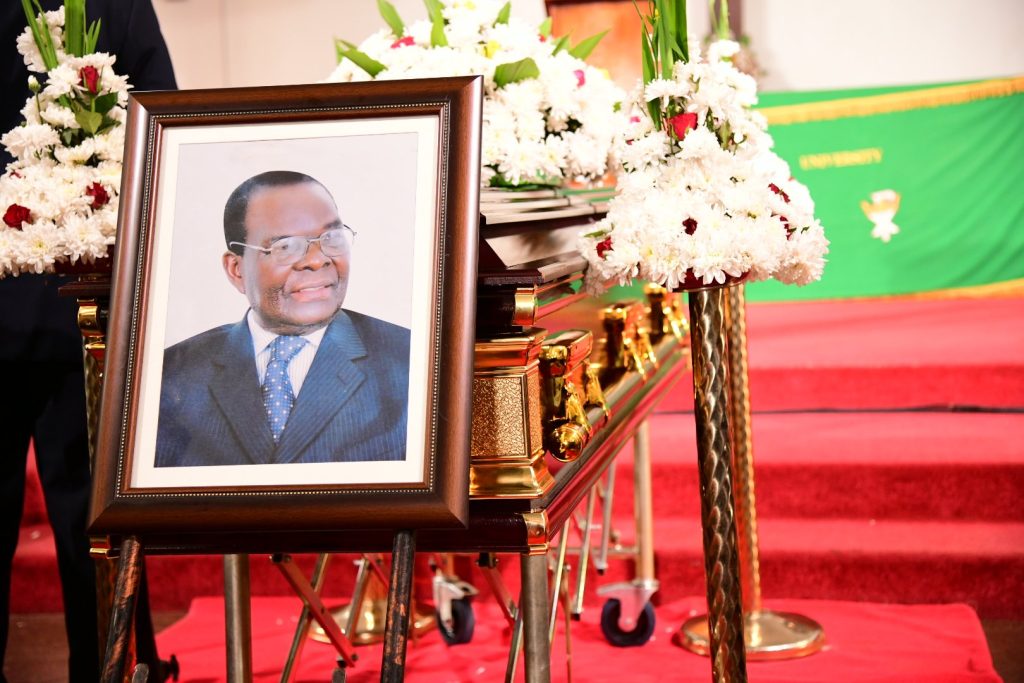
The service, filled with heartfelt tributes, underscored the deep respect and admiration for Mutekanga, whose contributions will continue to inspire generations at Makerere University and beyond.
Grace Wilson Mubi Igaga Mutekanga Igaga
Grace Wilson Mubi Igaga Mutekanga Igaga was born on June 29, 1943, to Daudi Kintu Mutekanga and Erina Babyale Mutekanga in Bubula, Kamuli, Busoga. He passed away on August 16, 2024, leaving behind a rich legacy rooted in education, music, and community service. Grace was married to Frances Katusabe Mutekanga, and together they raised a large and loving family, including their children: Basalirwa Frida, Mutekanga Andrew, Igaga Isaac, Igaga Yonah, Mutekanga Erina, Bakibinga Jacob, Igaga Amos, Namutebi Irene, Igaga Matthews, and Ibembe Patrick. His life was further blessed with numerous grandchildren.
Grace’s educational journey began at Naminage and Mwiri Primary Schools from 1951 to 1956, where he completed his Primary Leaving Examinations (PLE). He then attended Busoga College Mwiri from 1957 to 1962, earning his O-Level Certificate, and Makerere College School from 1963 to 1964, where he obtained his A-Level Certificate. He briefly attended Makerere University College, pursuing a Bachelor of Arts (Hons) degree, before transferring to Heidelberg University in Ohio, USA, where he earned a Bachelor’s Degree in Music between 1966 and 1969. He furthered his studies at Northwestern University in Evanston, Illinois, from 1970 to 1971.
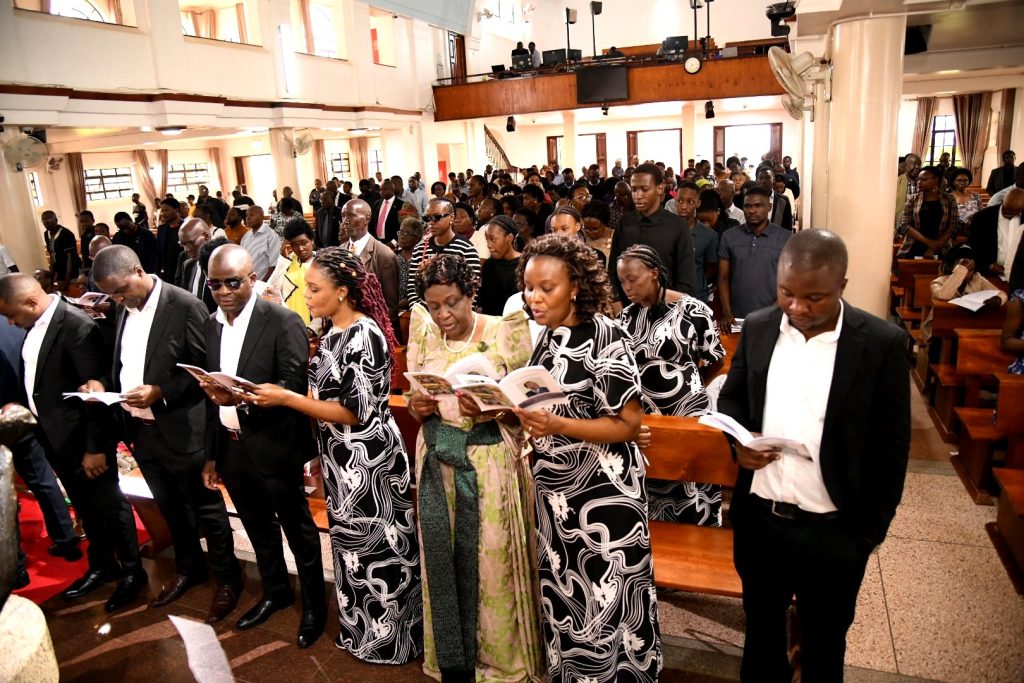
His career in education and music was distinguished and impactful. Grace began his professional journey at Olive-Hervey College in Chicago, USA, before returning to Uganda, where he served as a teacher and part-time lecturer at Makerere College School and the Department of Music, Dance, and Drama from 1971 to 1973. He later became the Head of the Music Department at the National Teachers College in Kyambogo from 1973 to 1975. Grace continued to shape young minds as a lecturer at Makerere University‘s Department of Music, Dance, and Drama, and later at the School of Education from 1975 to 1988. He also held leadership roles, such as Warden of Livingstone Hall and Principal of Bishop Willis Teacher’s College in Iganga from 1989 to 1995. His commitment to education culminated in his positions as Principal at Kabulasoke Teacher’s Training College and Director of the National Teacher’s College in Mubende from 1996 to 2003.
Grace’s contributions extended beyond the classroom. He composed the Makerere University Anthem and other notable songs and played a key role in proposing the Grade V Diploma Programme for Primary Teachers in Uganda, working closely with prominent figures such as Mrs. Joyce Mpanga and Mr. Eric Karuhije. His dedication to music education was recognized by his peers, earning him an honorary award from the PHI Delta Kappa Chapter at Northwestern University. Grace also served as the Chief Examiner for Music with the East African Examinations Council and contributed to various educational governing councils, including Mwiri Primary School, Iganga S.S., Buckley High School, and Kamuli Girls S.S. His work significantly impacted teacher education in Uganda, leaving a lasting legacy.
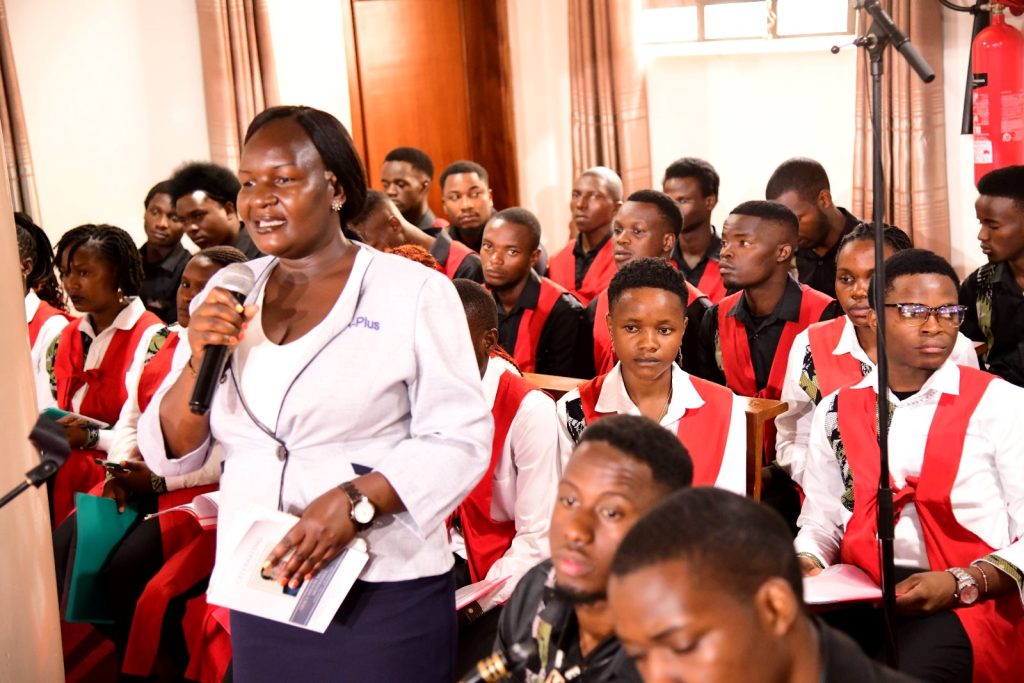
After retiring in 2003, Grace devoted himself to community development in Bufumba, Kamuli. He was deeply involved in church administration within the Church of Uganda and pursued his passion for agriculture, focusing on fruit cultivation. His contributions to Makerere University were recognized during its 90th Anniversary Grand Finale celebrations on August 3, 2013. Accompanied by his wife and family, he received an award from the Chancellor, Professor George Mondo Kagonyera, for composing the university anthem, earning a standing ovation from those present.
Mutekanga was a man of many interests and passions. He was an avid reader, a film enthusiast, and a passionate gardener who found joy in cultivating flowers. His love for music was profound, and he often sang whenever the opportunity arose. He valued laughter and happiness and cherished his time with friends and family, always generous in sharing love and joy. His life was a testament to his deep commitment to education, music, and community, and he leaves behind a legacy that will be remembered for generations.
You can watch live the entire funeral service via the link:
Jane Anyango is the Principal Communication Officer, CHUSS
You may like
-


76th Graduation Highlights
-
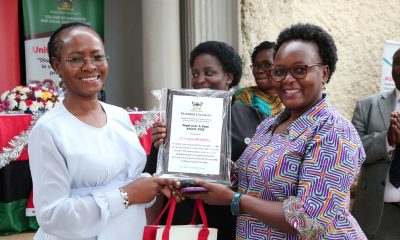

Dr. Pamela Khanakwa Honored for Steering Record 18 PhD Candidates for the Mak 2026 Graduation
-
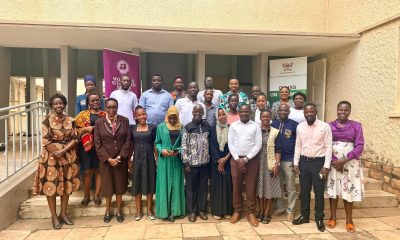

Ugandan Journalists Trained on Peace and Gender-Sensitive Reporting Ahead of 2026 Elections
-
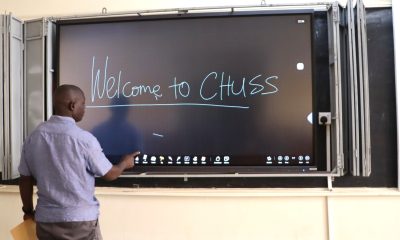

CHUSS Invests Over UGX 100 Million in Interactive Smart Screens, Upgrades Teaching Infrastructure
-
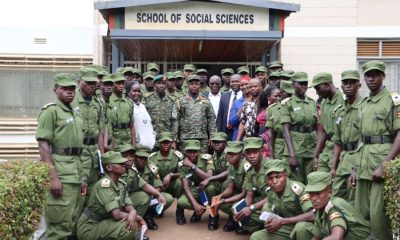

Over 130 Cadet Officers Oriented on Library Use at Makerere University
-


College of Humanities and Social Sciences Launches Five Groundbreaking Publications
Humanities & Social Sciences
Meet Najjuka Whitney, The Girl Who Missed Law and Found Her Voice
Published
5 days agoon
February 23, 2026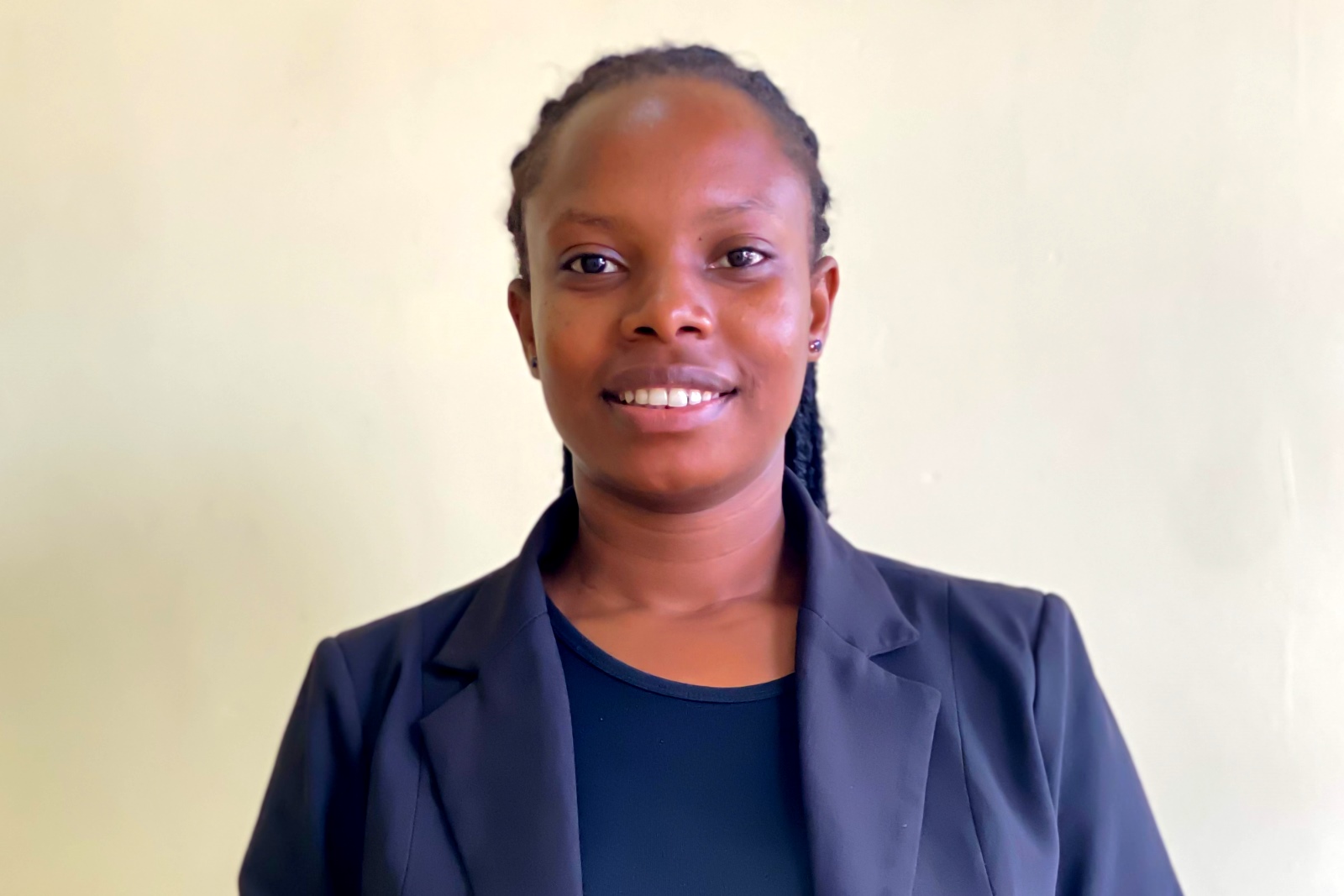
On the morning of Friday, February 27, when the academic procession winds its way across Makerere University’s Freedom Square for the last day of the 76th Graduation Ceremony, Whitney Najjuka will walk into history with a number beside her name: 4.46.
At Makerere, that number means First Class Honours. It means the Vice Chancellor’s List. It means she graduates as the only First-Class student in Journalism and Communication this year. But numbers, as Whitney has learned, rarely tell the full story.
Born on March 27, 2002, in Nabbingo, Kyengera Town Council, to Margaret Kusemererwa and Fred Kasirye, dreamt she would do Law, one of the disciplines, prestigious, almost inevitable next steps for a student who had excelled in secondary school. She had done everything correctly. Studied hard. Scored well. Followed the script.
But Makerere University had other plans. She missed the pre-entry mark, but found her name under Journalism and Communication, another prestigious course offered by the Journalism and Communication Department at Makerere University.
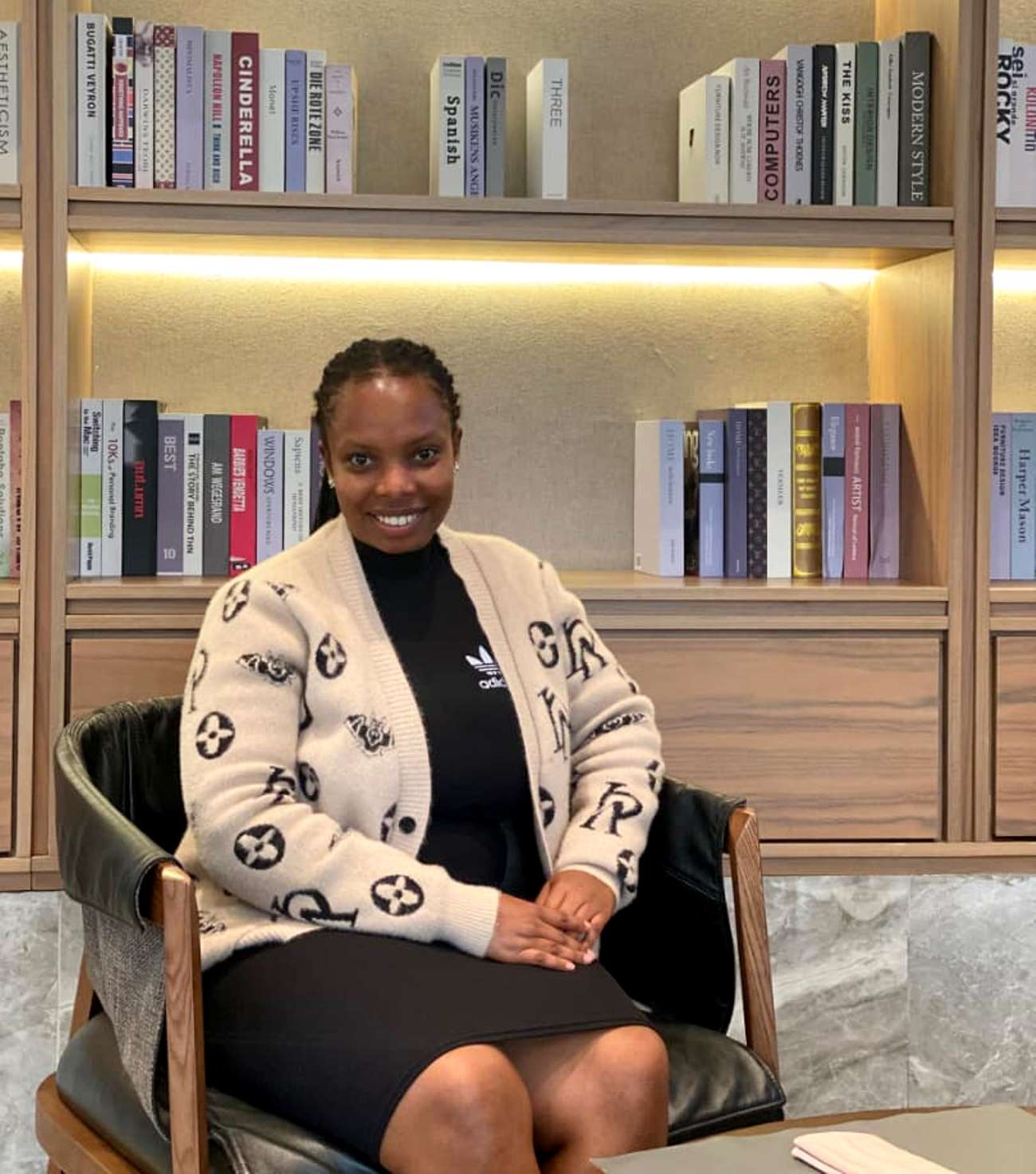
Najjuka began her academic journey at Muto Primary School in Buwama, earning 8 aggregates in the Primary Leaving Examination, a performance that positioned her strongly for secondary school.
She would later join St. Lucia Hill School, Namagoma, where she earned 20 aggregates at O-Level and 17 points in History, Luganda, and Divinity at A-Level.
Missing her dream course, Law, felt at first, like a detour. But Whitney was encouraged by Sanyu Christopher, her uncle, and she settled for a government-sponsored slot in the Bachelor of Journalism and Communication at Makerere, which she had applied for before.
She entered uncertain. But she graduates transformed.
The Pivot That Became a Purpose
Whitney speaks of her early university days with candor. She did not arrive at the Department of Journalism and Communication with a burning childhood ambition to be a journalist, but because another door had closed.
Then, Social and Behavior Change Communication happened. Applied Strategic Communication happened. She began to see media not as headlines and microphones, but as architecture, shaping how societies think, argue, and act.
The turning point came in her third year. The Female Journalist Foundation published her story on Sexual Gender-Based Violence (SGBV) and its emotional toll on survivors. What startled her was not its publication but the reaction. Comments flooded in. Debates ignited, especially about the role of men in combating GBV.
“I realized media doesn’t just report,” she says. “It frames how society views a crisis.”
Her voice, once tentative, had entered a national conversation.
The Discipline Behind 4.46
At Makerere University, a First Class CGPA is not built on brilliance alone but on ritual.
Whitney’s ritual began with showing up, on time, every time. She treated lectures as appointments with her future self. She refused to confine her learning to the syllabus. While attending workshops at the Aga Khan Graduate School of Media and Communication and obtaining external certifications, she sought and was open to mentorship through the Public Relations Association of Uganda (PRAU).
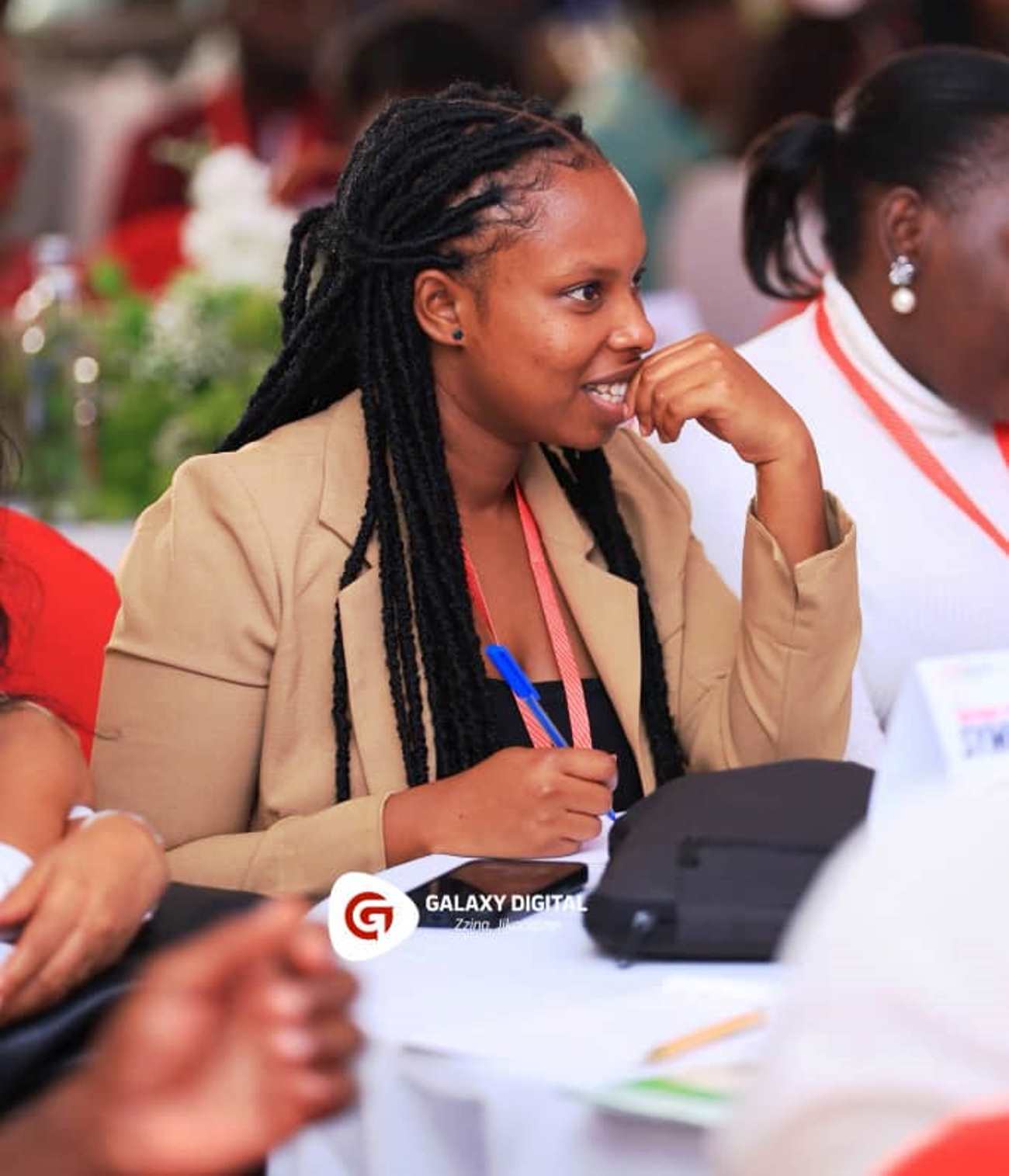
She wanted theory anchored in practice. And then there was the commute.
From Nabbingo, a hill in Wakiso District, some 18.6 km to Kampala, where the Makerere Main campus is situated, and back, nearly 20 hours a week dissolved into Kampala traffic. Two-hour journeys before 8:00 a.m. lectures. Dust. Noise. Headaches. She learned to manage energy the way others manage time. Fatigue became a tutor in resilience.
“I had to be intentional with every remaining hour,” she says. “Excuses were not an option.”
Learning to Practice Communication
If classrooms taught her analysis, presentations taught her courage. Pitching projects, defending research, and standing before peers quick to critique forced her to think on her feet. She was no longer simply studying communication; she was practicing it.
In 2024, the AGMES Fellowship at the Aga Khan Graduate School of Media and Communication pushed her further. She received funding to produce a capstone project on the mental impact of gender-based violence on survivors. She identified sources, conducted interviews, handled trauma with care, and worked with professional editors.
The Communication, she learned, is logistics and ethics as much as eloquence.
The Future She Sees
Whitney is optimistic about Uganda’s media landscape. The digital shift, she believes, has democratized influence. Young communicators are no longer confined to legacy newsrooms or offices.
Yet she sees a gap in the absence of structured research on sustainable, ethical, profitable independent media ventures in Uganda. Her ambition is not only to practice communication, but to study it. To produce data-backed frameworks that help young Ugandans transition from graduates to media entrepreneurs.
She wants to make the impact scalable.
What Remains
As the only First-Class graduate in her cohort, she is careful not to mythologize herself. “Success isn’t brilliance alone,” she says. “It’s a daily commitment when nobody is watching.”
Even before graduation, Whitney had stepped into the industry through a mentorship internship at Capital One Group (COG EA Ltd), a strategic marketing communications agency operating across East Africa.
At Capital One Group, we spoke to Paul Mwirigi Muriungi, the Managing Director and Head of Strategy, who spoke of Najjuka as a progressive and intentional young professional who approaches her work with curiosity, maturity, and responsibility.
“Her attitude is exemplary. She is teachable, receptive to feedback, and eager to grow. While technical skills can be taught, character, work ethic, and mindset determine long-term success, qualities that Whitney consistently demonstrates. Given her academic excellence and professional application, we believe she has a bright future both at Capital One Group and within the wider communications industry. She represents the kind of talent the profession needs: thoughtful, adaptable, and committed to excellence.
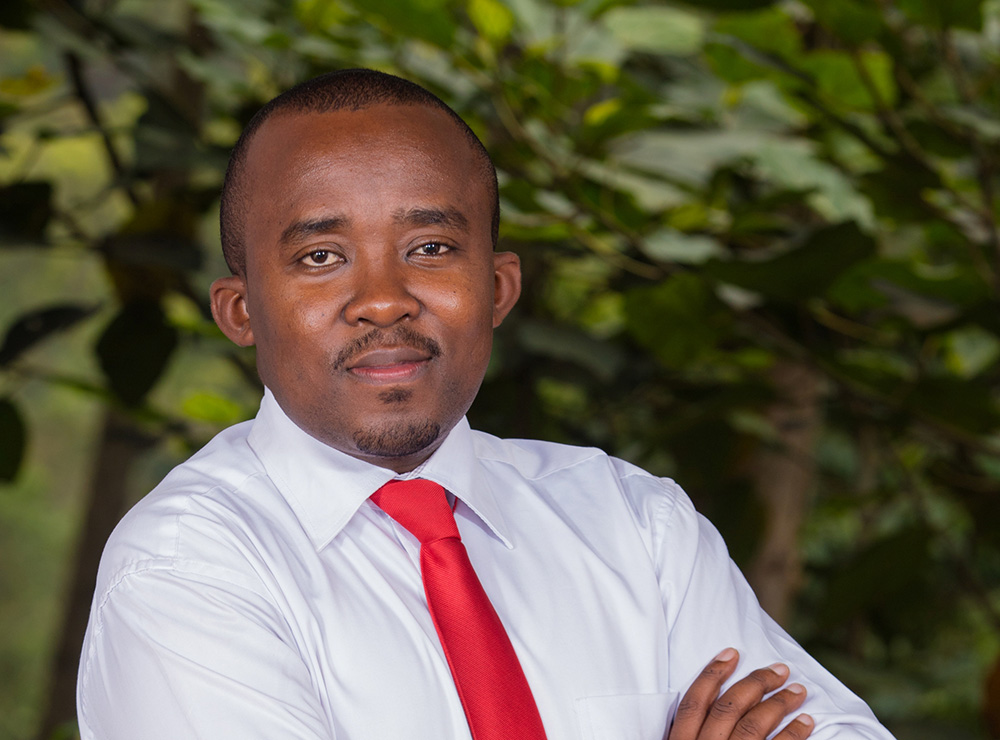
“We look forward to seeing her next chapter unfold,” says Mwirigi.
Najjuka’s gaze extends beyond her own trajectory. She speaks of what the Department could become. Furnished and equipped with industry-standard equipment, newsroom simulations, and deeper investment in data journalism as prayers. Her excellence is not self-congratulatory, but it is forward-looking.
“The University should support the Department to procure industry-standard equipment. Access to high-quality cameras, sound booths, and updated editing software like Adobe Creative Suite is critical to our learning environment,” she says.
Adding that, “We need a newsroom simulation, a physical or digital space where students work under real-time deadlines to produce content for the public. That would prepare us for industry and even strengthen the University’s own media platforms.”
In an era defined by metrics, algorithms, and digital traceability, data journalism is no longer a niche skill but a sine qua non of credible reporting. “There should also be more focus on data journalism and search engine optimization. These are no longer optional skills. Students would benefit immensely from stronger training in these areas.”
Dr. Aisha Nakiwala, the Head, Department of Journalism and Communication, says the faculty are very proud that she is graduating with a First Class—the only one in this year’s cohort.
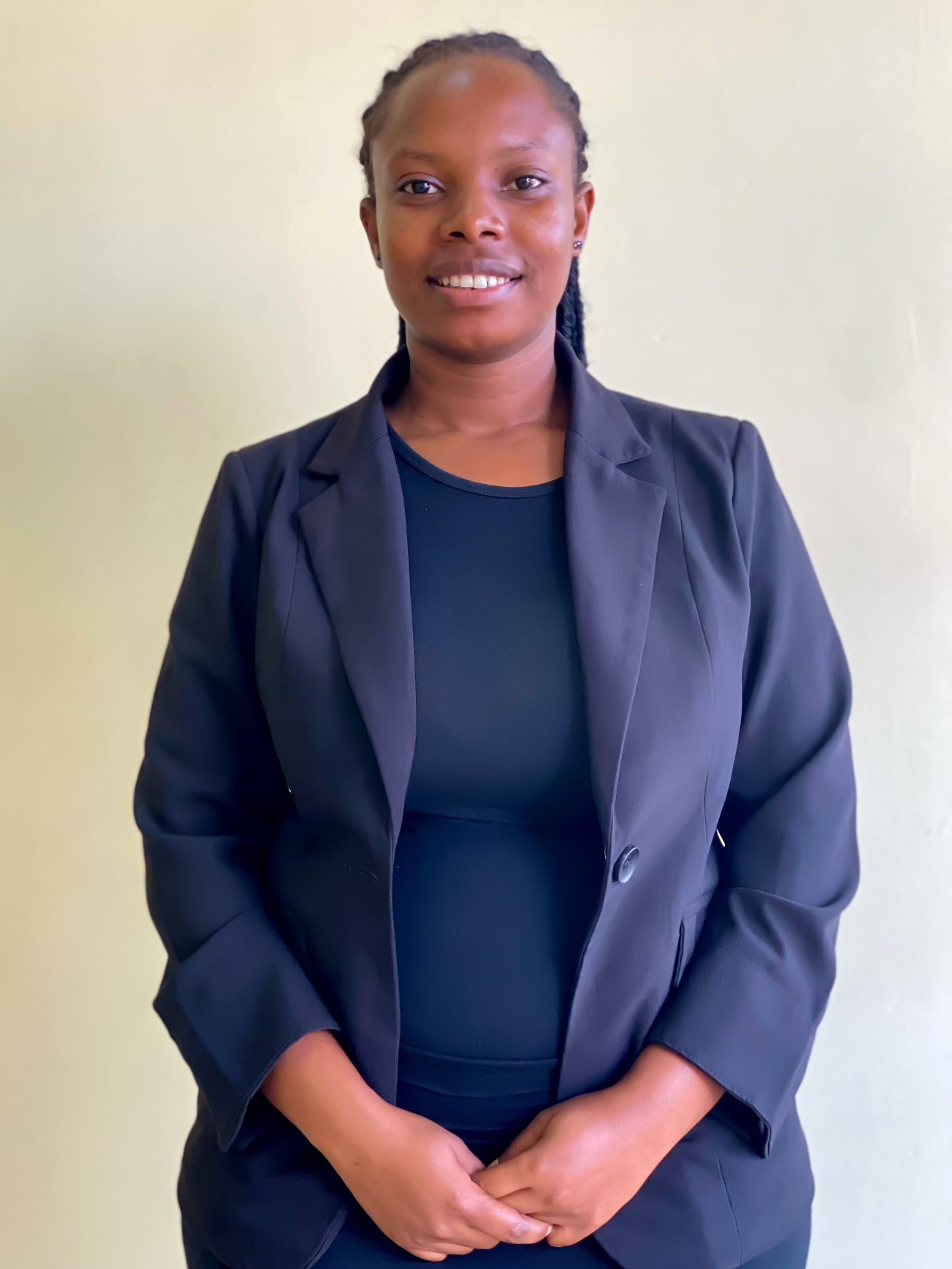
“This achievement reflects not only exceptional intellectual ability but also discipline, resilience, and sustained dedication to the highest standards over four years. Graduating with first-class honors is no small feat; it requires consistent outstanding performance.
“Her accomplishment sets a powerful example for continuing students and reaffirms our department’s commitment to nurturing excellence. We are confident she will make meaningful contributions to the communication profession and society at large,” says Dr. Nakiwala.
On graduation day, applause will crest and recede. The gowns will fold back into wardrobes. The transcripts will be filed away in cabinets. But something quieter will endure; a young woman from Nabbingo who once missed her Law mark, who spent 20 hours a week on the road, who discovered that storytelling is power, and who now walks into Freedom Square not by accident, but by intention.
Life, as she has come to understand it, lives on.
Humanities & Social Sciences
Dr. Pamela Khanakwa Honored for Steering Record 18 PhD Candidates for the Mak 2026 Graduation
Published
1 month agoon
January 23, 2026By
Jane Anyango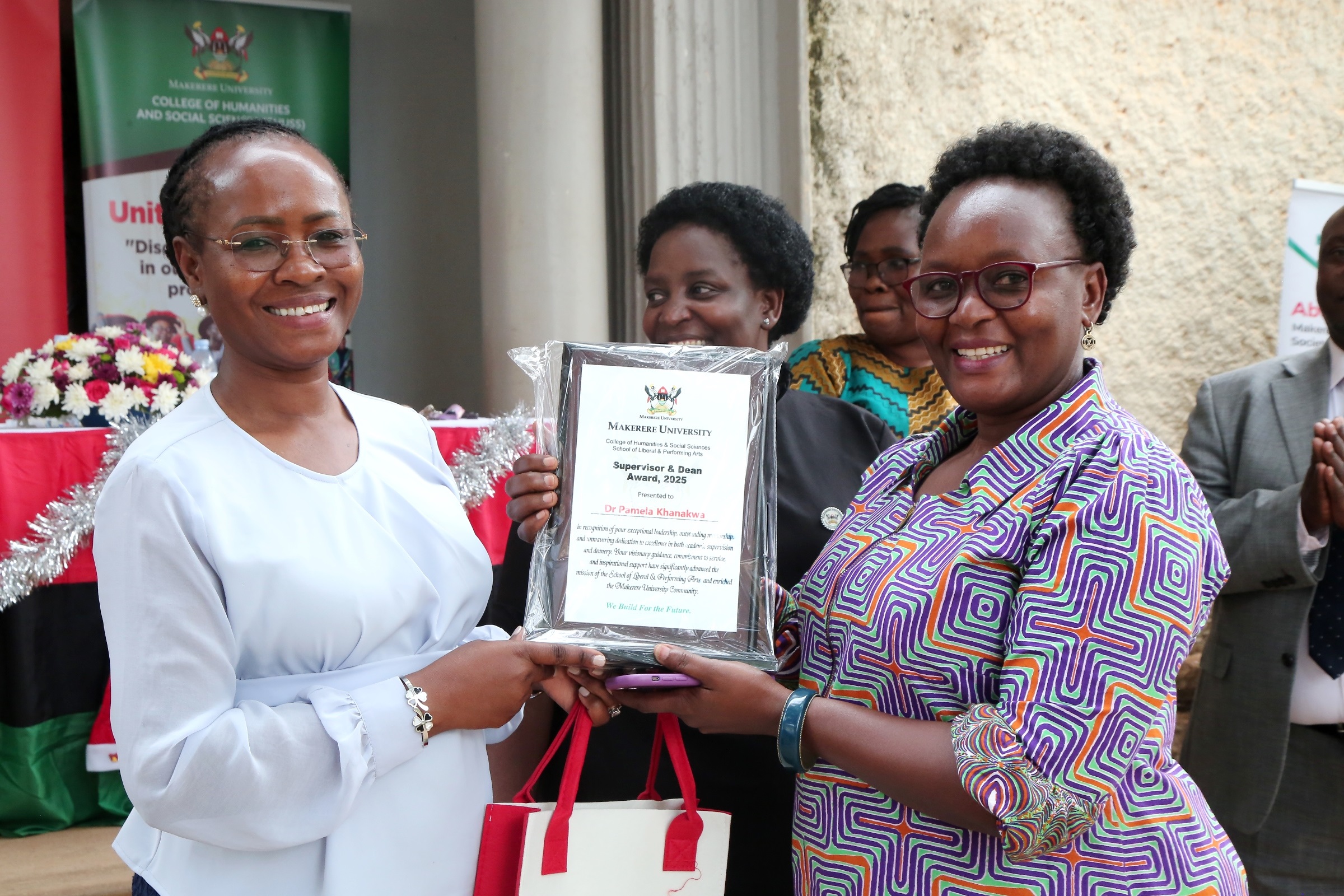
Six personally supervised, three completed in record time, as School of Liberal and Performing Arts sets a historic milestone. Dr. Pamela Khanakwa got the Award as Best PhD Supervisor and Dean
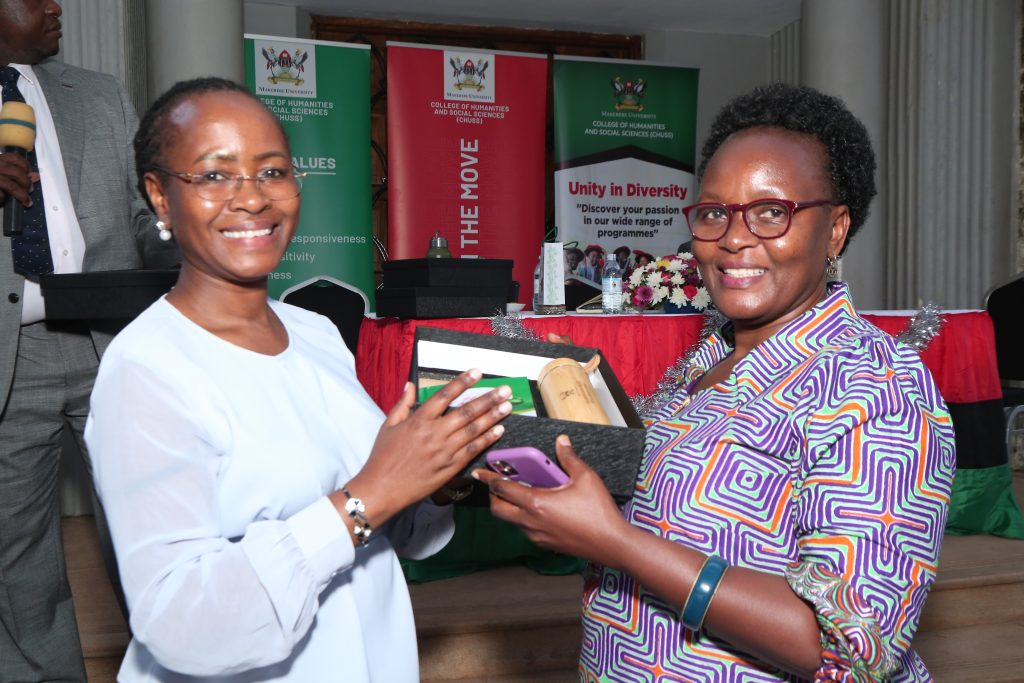
A Historic Academic Milestone for SLPA
The College of Humanities and Social Sciences (CHUSS) recognised the Dean of the School of Liberal and Performing Arts (SLPA), Dr. Pamela Khanakwa, for outstanding academic leadership that has seen the School field 18 PhD candidates for the next 2026 Makerere University Graduation Ceremony scheduled for 24th-27th February. Remarkably, six of these doctoral graduates were directly supervised by Dr. Khanakwa, with three completing within the official three-year timeframe, an exceptional achievement in graduate training. The recognition was announced during the CHUSS End-of-Year Get-Together, where staff applauded Dr. Khanakwa’s dedication, humility, and relentless commitment to postgraduate supervision and timely completion.
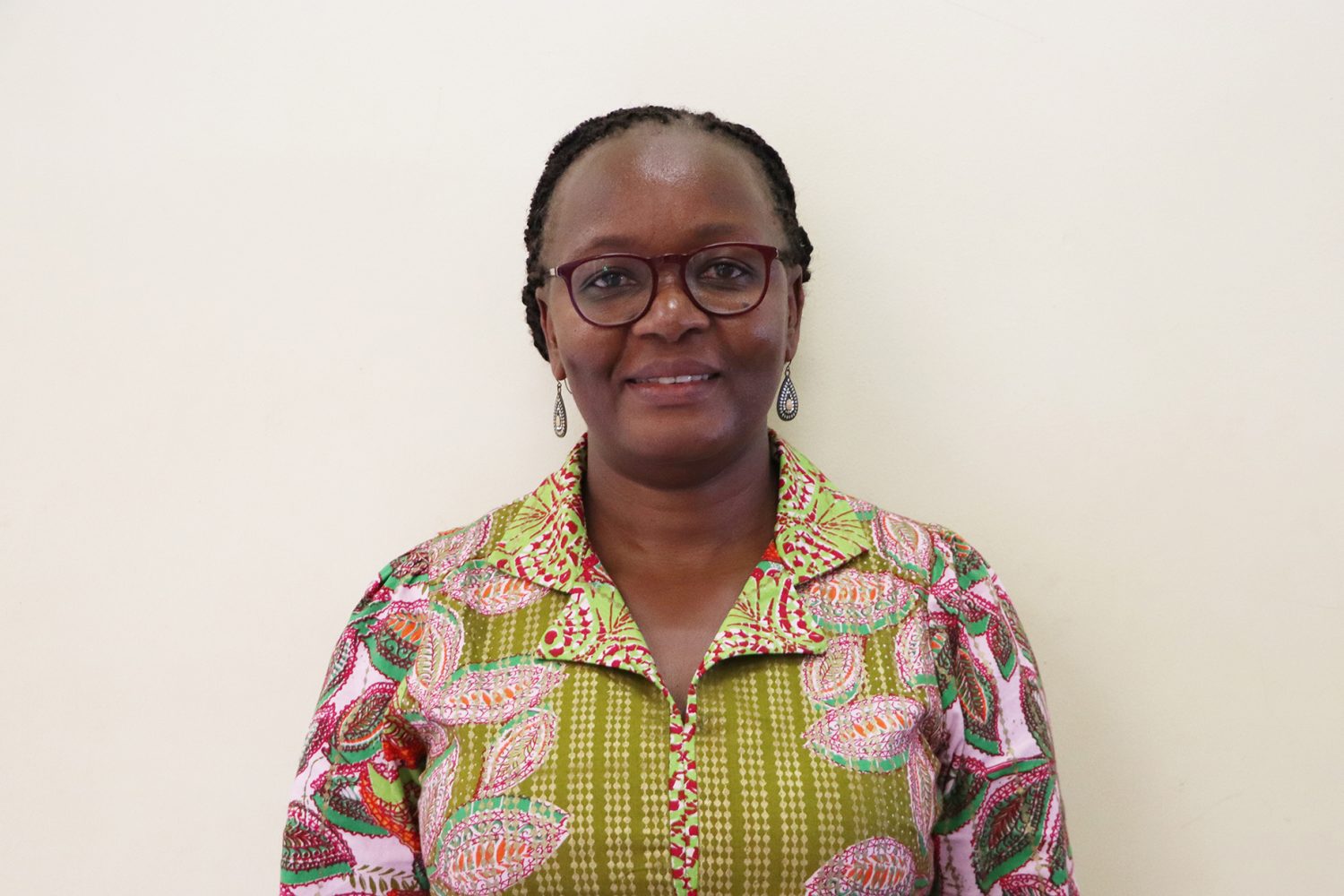
Message to Academic Staff
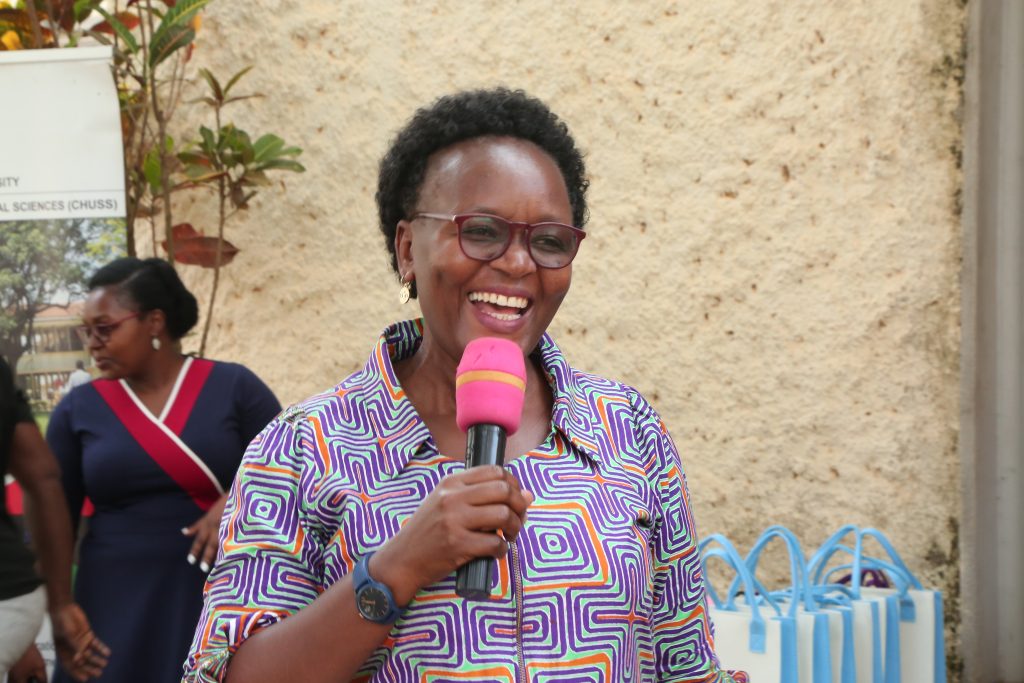
Q: What message do you have for your staff following this achievement?
Dr. Khanakwa:
First, I celebrate my staff and thank them for their dedication to supervision and student support. Academic work is demanding, and material rewards are often limited, but the true satisfaction comes from seeing students succeed.
I encourage my colleagues to remain committed. Yes, the workload is heavy, but many things are possible with dedication and teamwork. Let us continue working for the good of our students, our School, and Makerere University.
Leadership Rooted in Humility
Q: Many colleagues describe you as humble, down to earth, and hardworking. What shapes this character?
Dr. Khanakwa:
I think it is largely my upbringing. My mother was a primary school teacher from the 1950s until the mid-1980s. She worked extremely hard to raise us, combining teaching with farming to ensure we had school fees and basic needs. From her, I learned humility, discipline, and the value of hard work.
I also learned that leadership positions are temporary. You occupy them today, and tomorrow you move on. So humility is essential.
My graduate training also shaped me significantly. My PhD supervisor emphasized that graduate study is a full-time job and that results matter more than noise. Let people see your work through outcomes, not announcements.
Supervision as a Two-Way Commitment
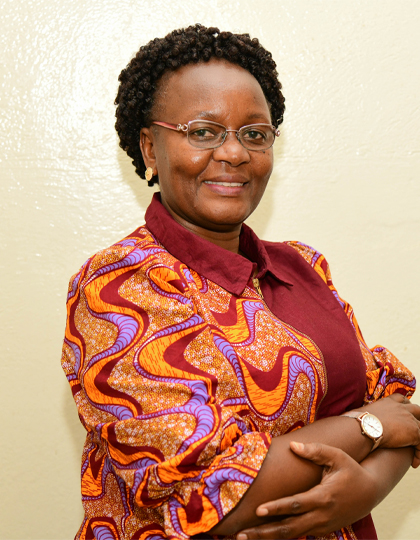
Q: How would you describe your supervision style?
Dr. Khanakwa:
I read my students’ work thoroughly, word by word. Sometimes my comments are tough, but they are honest. Supervision is a two-way commitment. I give feedback, but students must also respond and remain engaged. When that relationship works, progress happens.
Balancing Leadership, Scholarship, and Family
Q: How do you balance being a Dean, scholar, wife, mother, and daughter?
Dr. Khanakwa:
Honestly, I am not sure I balance perfectly. My mother lives far away in Bukwo, so visiting requires careful planning. My children grew up understanding the demands of academic life. I pursued my PhD in the United States and spent long periods away, but we adapted as a family.
Work has become part of my lifestyle. I use weekends to read dissertations, review manuscripts, and write. Sometimes my children ask if I ever sit without working, but this is the commitment I made. As we often say jokingly, “We humbly applied for the job, so let us do the job.”
Scholarship Beyond Supervision
Dr. Khanakwa is also an active scholar and editor. In the past year alone, she has:
- Edited scholarly volumes on archives, memory, method, and pedagogy
- Published a book with Routledge Companion
- Co-authored journal articles and book chapters with graduating students, including Priscah Asiimwe and Anatoli Lwasa Mpijja
“I feel an obligation to write with students,” she notes. “It takes time, energy, and commitment, but it is part of academic mentorship.”
Who Is Dr. Pamela Khanakwa?
Dr. Pamela Khanakwa is the Dean, School of Liberal and Performing Arts, College of Humanities and Social Sciences, Makerere University. She is a seasoned scholar, supervisor, administrator, and mentor whose leadership continues to redefine graduate training excellence. Details about Dr. Pamela Khanakwa can be accessed at: https://chuss.mak.ac.ug/en/personnel/pamela-khanakwa/
More details are available in her attached curriculum vitae.
The CHUSS End- Of-Year-Get-Together
On 12th December, 2025 the college leadership organised a get-together end of year gathering to take stock of the achievements, challenges and brainstorm together on how to move forward. The event was marked by entertainment, team building games, appreciation speeches, sharing a meal and a Christmas package for every staff
Retirees and staff recognised
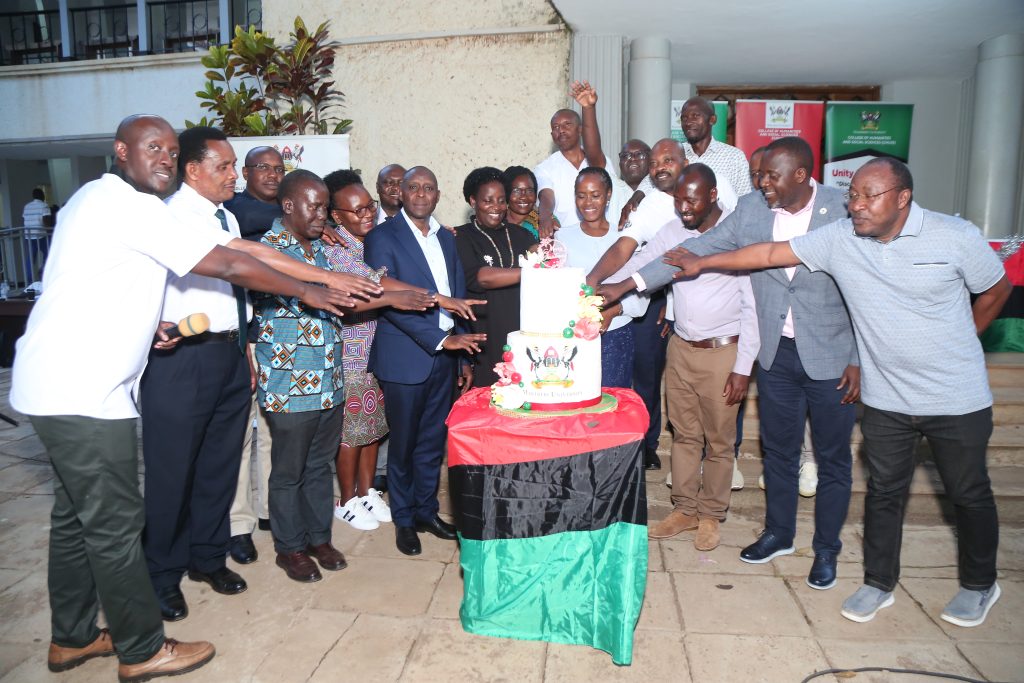
Five retired staff Dr. Micheal Wangotta Masakala, Dr. Anatole Kirigwajjo and Dr. Jackson Kizza Mukas (all from the School of Languages, Literature and Communication), Assoc. Prof. Florence Nansubuga (School of Psychology), Dr. Tusabe Gervase (School of Liberal and Perforing Arts) and Ms. Scovia Nganda Sekweyama (secretary from the School of Social Sciences) were recognised for their dedicated services to the university.
In addition to Dr. Pamela Khanakwa’s Award as Best PhD Supervisor and Dean, Ms. Birabwa Florence scooped the award of Best Registrar of the year. Birabwa is the registrar for the School of Liberal and Performing Arts.
Administrative and support staff including Ms. Mary Gyezaho and Annet Kashumbusha(both administrative secretaries in the Principals office), Farouq Lule (IT Officer), Godfrey Kakooza (cleaner), Charles Sebuguzi (driver) and Jane Anyango (Communications officer) were recognise with awards for outstanding service. Dr. Mohamed Mayanja Kajumba was from the School of Pyschology was recognised as the person with an outstanding talent in Handwriting.
The celebrations held in the Arts quadrangle were graced by the Vice Chancellor Academic Affairs Prof. Sarah Ssali and the Deputy Vice Chancellor in charge of Finance and Adminstration Prof. Ireeta Tumps.
Humanities & Social Sciences
Ugandan Journalists Trained on Peace and Gender-Sensitive Reporting Ahead of 2026 Elections
Published
2 months agoon
January 9, 2026By
Jane Anyango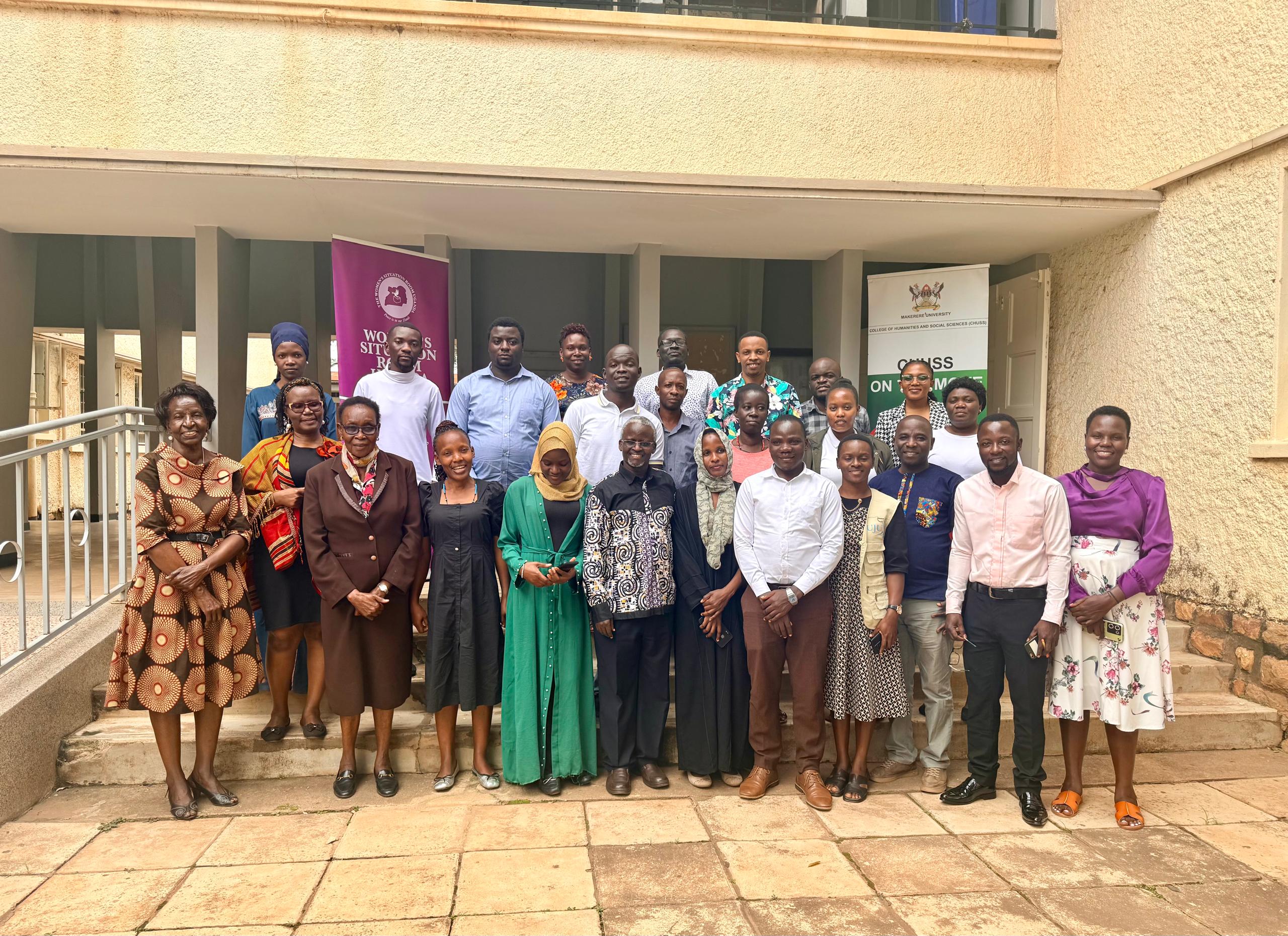
Kampala, Uganda – January 9, 2026
Ahead of the January 15 general elections, Ugandan journalists have undergone specialized training on peace and gender-sensitive reporting to ensure responsible media coverage during the election period. The two-day training, held from 8th to 9th January 2026 at Makerere University’s College of Humanities and Social Sciences Smart Room, was organized by the Women’s Situation Room (WSR) in partnership with various stakeholders and brought together journalists from across print, broadcast, and online platforms.
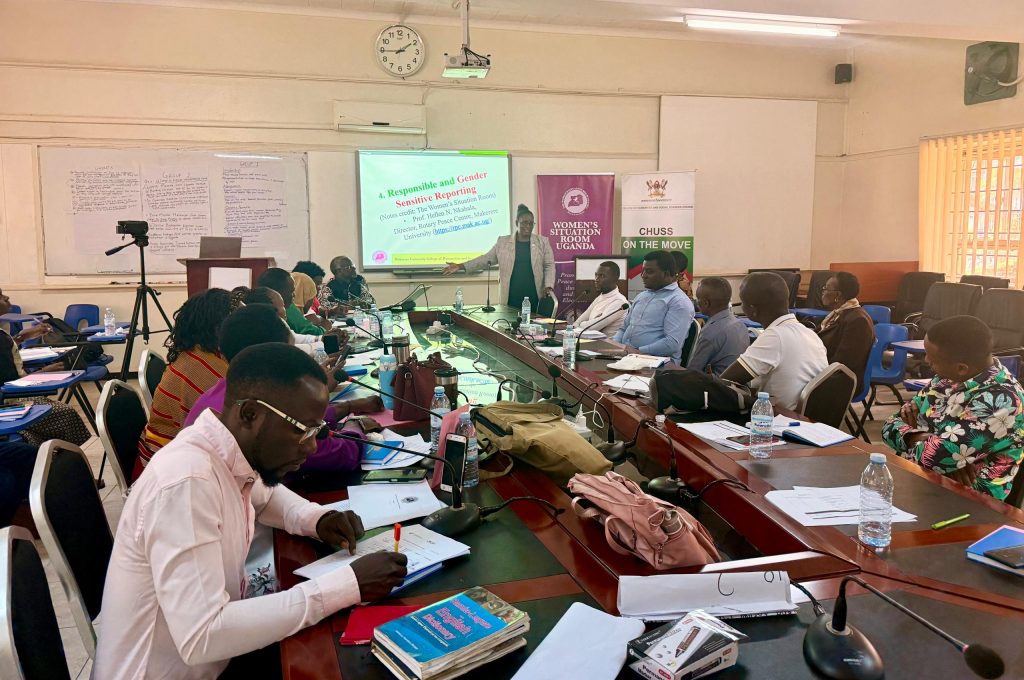
The main objective of the training was to strengthen the capacities of media in reporting and documenting electoral processes in a responsible and gender-sensitive manner. The specific objectives included: strengthening journalists’ skills to cover the 2026 elections in a fair, balanced, gender-sensitive, and non-violent partisan way; enhancing the role of media to enable citizens to be well-informed and actively participate in the election process; ensuring focused and balanced reporting on peace during and after elections; and strengthening partnerships between the WSR and media houses during the election period.
The training covered multiple critical modules. Day one focused on responsible conflict-sensitive reporting, emphasizing principles such as balance, impartiality, and accuracy. Participants explored the role of media as a relayer of the population’s voice, election monitor, catalyst for social cohesion and reconciliation, contributor to the accountability of political actors, and a platform for detecting and debunking digital media misinformation and hate speech.
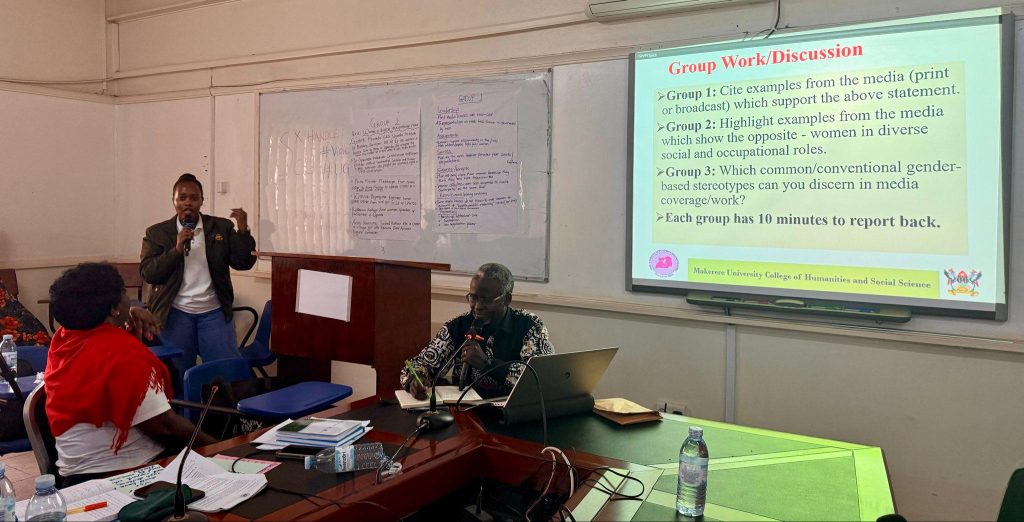
Day two addressed responsible and gender-sensitive reporting. Key aspects included the definition of gender-sensitive reporting, how to become a gender-sensitive reporter, critical elements in reporting with gender awareness, packaging gender-sensitive stories, and a checklist for detecting and avoiding gender-insensitive reporting.
Her Lordship, retired Judge Justice Mary Mayitum, emphasized the importance of peace as the foundation of development and democratic engagement. “Because we value peace more than anything. Without peace, really, you can do nothing. But where there is peace, you can have time to reflect, discuss with others, and join in meaningful dialogue,” she said. She warned that the country’s past conflicts, such as those in Gulu, underscored the necessity of maintaining national harmony.
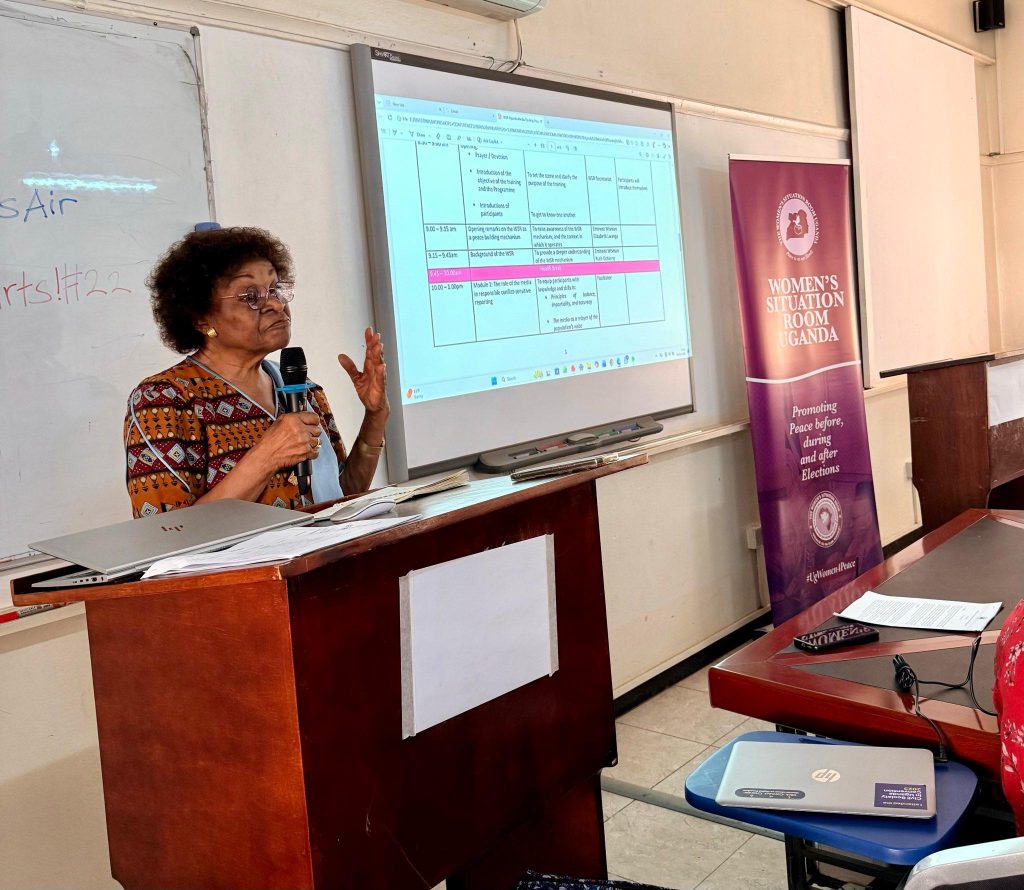
Justice Mayitum also urged other key election stakeholders to uphold peaceful conduct. “Being peaceful is the very heart of life. We have spoken to police, security personnel, political parties, and the Electoral Commission. We want politicians to have a code of conduct and to understand that it’s okay to think differently without fighting or hating one another,” she added.
Dr. William Tayebwa, lead facilitator and senior lecturer in the Department of Journalism and Communication at Makerere University, said, “This training is about conflict-sensitive reporting, peace journalism, and gender-sensitive reporting in the context of the elections. The emphasis was on giving female political candidates a voice while ensuring journalists report responsibly on election-related matters.”
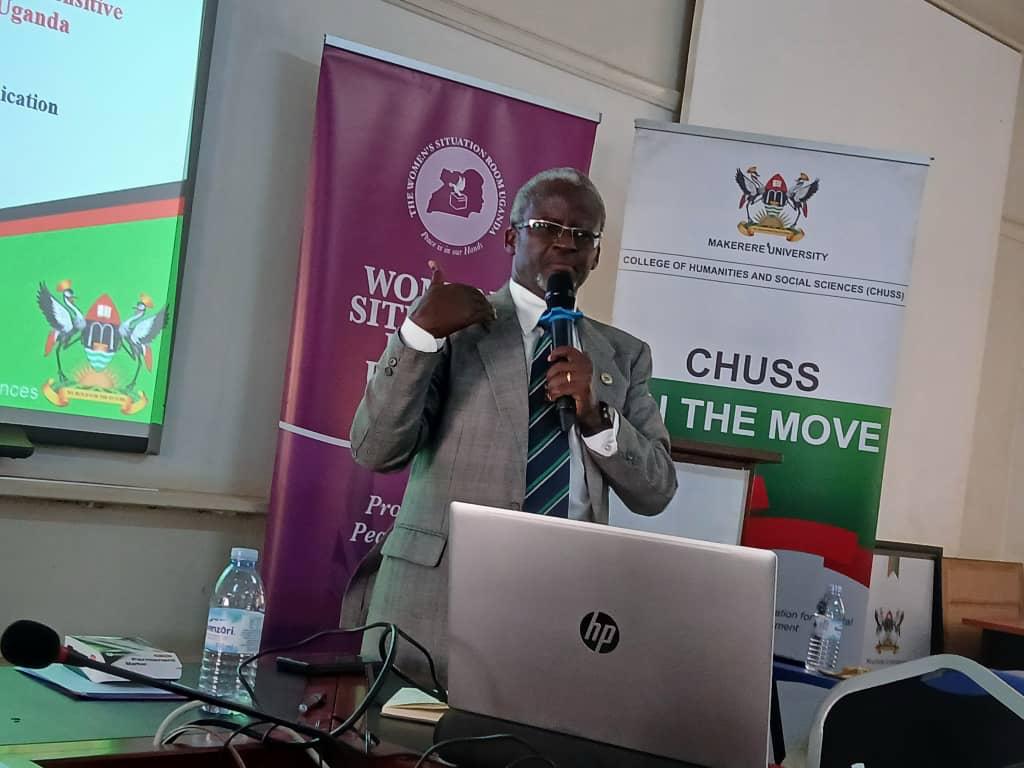
Participants described the training as timely and impactful. Tony Banizengabo of CBS Wakiso District said, “We’ve benefited a lot. We’ve been trained to write stories which bring peace, not conflict. Ahead of the elections, we are very ready to be part of peacemakers.”
Dorcas Kimono of UBC TV Kampala added, “It was so timely and rich. We learned how to report without promoting or fueling violence, giving voice to victims without angering them or encouraging violators. This is very vital, especially as we approach the 2026 elections.”
The training aims to equip media personnel with the knowledge and skills to uphold professional ethics while contributing to a peaceful, inclusive, and gender-sensitive electoral process.
Trending
-

 Humanities & Social Sciences5 days ago
Humanities & Social Sciences5 days agoMeet Najjuka Whitney, The Girl Who Missed Law and Found Her Voice
-

 Health1 week ago
Health1 week agoUganda has until 2030 to end Open Defecation as Ntaro’s PhD Examines Kabale’s Progress
-

 Agriculture & Environment1 week ago
Agriculture & Environment1 week agoUganda Martyrs Namugongo Students Turn Organic Waste into Soap in an Innovative School Project on Sustainable Waste Management
-

 General4 days ago
General4 days ago76th Graduation Highlights
-

 General1 week ago
General1 week agoMastercard Foundation Scholars embrace and honour their rich cultural diversity
